
Narciso Ibáñez Menta was a Spanish theatre, film, and television actor. He developed much of his career in Argentina, during the Golden Age of Argentine cinema of the 1930s and 1940s.
El Último de la Fila was a successful Spanish rock group based in Barcelona, Spain. Formed in 1985 by Manolo García and Quimi Portet, the group released a total of 7 full-length albums before disbanding in early 1998.

Eva María Hernández Villegas, better known as Eva Hache, is a Spanish choreographer, comedian, actress and television show hostess. Among other performances, she is known for her late night show Noche hache, and for hosting two successive Goya Awards ceremonies.

Carlos Rinaldi was an Argentine film director of the classical era of Argentine cinema and beyond. He began his career in 1937 with Argentina Sono Film, working in editing. Subsequently, he joined Associated Argentine Artists, where he was responsible for the editing of the company's entire production, earning recognition as the leading editor of his time. Rinaldi made his directorial debut with La cuna vacía in 1949 and directed numerous films until 1980.

Américo Hoss was a prolific Hungarian-Argentine cinematographer.
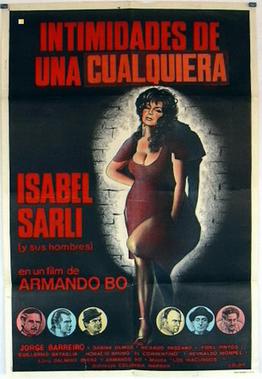
Intimacies of a Prostitute is a 1974 Argentine sexploitation drama film directed by Armando Bó and starring Isabel Sarli, Jorge Barreiro, and Sabina Olmos. Various dates of the release have been given, some as early as 1971 or 1972.

Guillermo Battaglia was a prolific Argentine film actor of the classic era of Argentine cinema.

Krency Garcia, better known as El Prodigio, is a famous merengue típico accordionist from Cabrera, Dominican Republic. He is known throughout the genre for his rapid instrumental solos, his origination of fusion in merengue tipico with genres like jazz, and his rivalry with fellow accordionists, Geovanny Polanco and Kerube. While the latter two are slightly more traditional, El Prodigio is more experimental, and has included instruments such as trombone, trumpet, and wurlitzer piano in his lineup, along with the standard accordion, tambora, güira, conga, electric bass, and saxophones of today's merengue tipico.

Rafael Azcona Fernández was a Spanish screenwriter and novelist who worked with some of the best Spanish and international filmmakers. Azcona won five Goya Awards during his career, including a lifetime achievement award in 1998.

Francisco Petrone was an Argentine film actor, notable for his work during the Golden Age of Argentine cinema. He is best known for his roles in the 1940s in the classic film La Guerra Gaucha (1942) and A Real Man (1943), for which he won the Silver Condor Award for Best Actor at the 1944 Argentine Film Critics Association Awards.
Miguel Giménez Igualada was a Spanish individualist anarchist writer also known as Miguel Ramos Giménez and Juan de Iniesta.
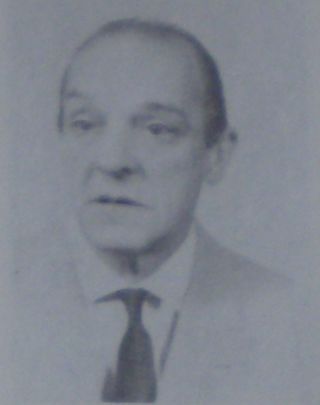
Miguel Ligero (1911–1989) was a film, television and theater actor from Argentina.
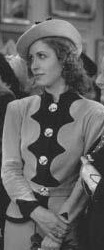
Adelaide Soler was an Argentine film, stage, radio, television and theater actress during the golden age of Argentina cinema. She was born in Buenos Aires and died there in 1976.

George Andreani, pseudonym Josef Dvořáček (born as Josef Kumok; 28 February 1901 in Warsaw, Poland – 2 April 1979 in Buenos Aires, Argentina) was a Polish composer, film score composer, pianist, conductor, and actor. He was noted for his scores of some 75 Argentine films during the Golden Age of Argentine cinema from 1937 to 1959. Aside from his prolific work as a score composer, he was also conductor of the Orquesta Sinfónica Schenley in the 1940s.

Celia Geraldy was an Argentine vedette actress in film and theater. She was a femme fatale at the beginning of Argentina's golden decade of cinema.
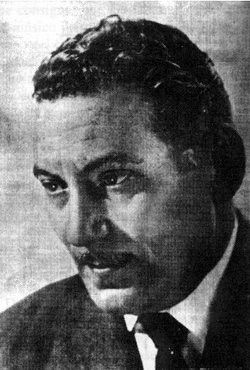
Alberto Amado Ribero, known professionally as Tito Ribero, was an Argentine film score composer, composer, singer, and musician. In addition to having his own orchestra, he provided the film scores to over 200 movies, at his most prolific in the 1950s and 1960s. For Del otro lado del puente he won the Silver Condor Award for Best Original Score from the Argentine Academy of Cinematography Arts and Sciences in 1953.

Un día cualquiera is a Mexican anthology television series that premiered on Azteca Trece on 15 August 2016, and concluded on 28 October 2016. The series is presented by Alberto Casanova as Himself. In each episode three stories are shown, of which two are true and one is false.
Yolanda García Serrano is a Spanish film director and writer, the winner of the 1994 Goya Award for Best Original Screenplay for the film All Men Are the Same.
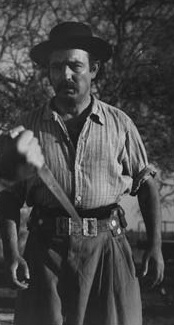
Raúl del Valle was a Chilean film and theatre actor who performed for most of his career in Argentina.















